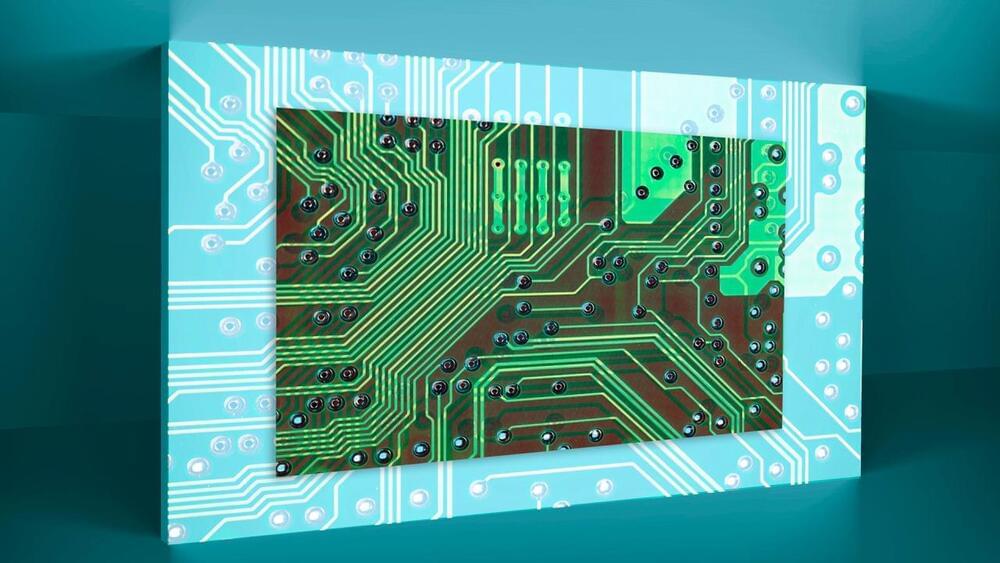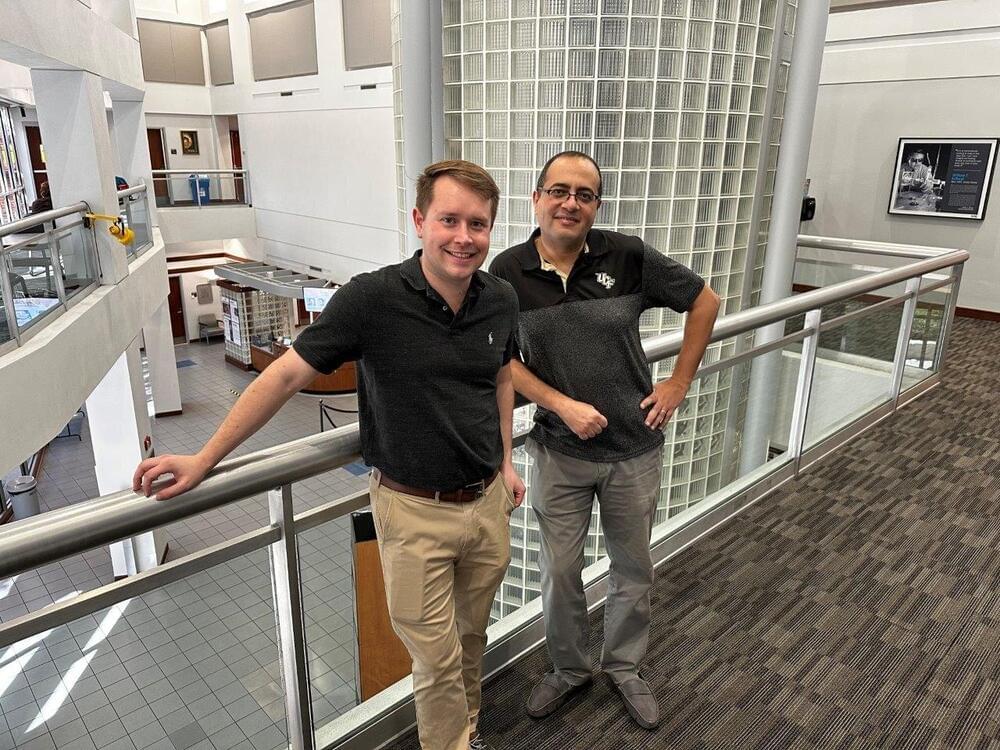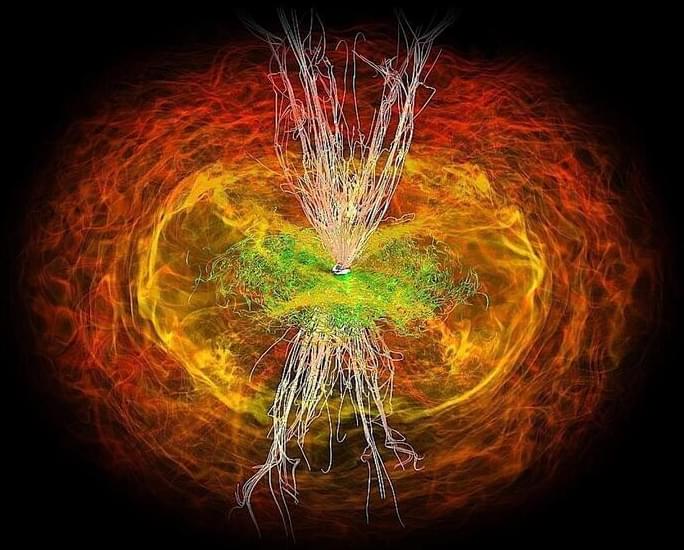How messy does spacetime get if we take our shuttle up to warp speed like in Star Trek? Is everything suddenly in multiple places at once?


❤️ Check out Weights & Biases and sign up for a free demo here: https://wandb.com/papers.
📝 The paper “Co-Writing Screenplays and Theatre Scripts with Language Models: An Evaluation by Industry Professionals” is available here:
https://deepmind.github.io/dramatron/details.html.
My latest paper on simulations that look almost like reality is available for free here:
https://rdcu.be/cWPfD
Or this is the orig. Nature Physics link with clickable citations:
https://www.nature.com/articles/s41567-022-01788-5
🙏 We would like to thank our generous Patreon supporters who make Two Minute Papers possible:
Aleksandr Mashrabov, Alex Balfanz, Alex Haro, Andrew Melnychuk, Benji Rabhan, Bryan Learn, B Shang, Christian Ahlin, Edward Unthank, Eric Martel, Geronimo Moralez, Gordon Child, Jace O’Brien, Jack Lukic, John Le, Jonas, Jonathan, Kenneth Davis, Klaus Busse, Kyle Davis, Lorin Atzberger, Lukas Biewald, Matthew Allen Fisher, Matthew Valle, Michael Albrecht, Michael Tedder, Nevin Spoljaric, Nikhil Velpanur, Owen Campbell-Moore, Owen Skarpness, Rajarshi Nigam, Ramsey Elbasheer, Richard Sundvall, Steef, Taras Bobrovytsky, Ted Johnson, Thomas Krcmar, Timothy Sum Hon Mun, Torsten Reil, Tybie Fitzhugh, Ueli Gallizzi.
If you wish to appear here or pick up other perks, click here: https://www.patreon.com/TwoMinutePapers.
Thumbnail background image credit: https://pixabay.com/images/id-1668918/

There are two aspects to a computer’s power: the number of operations its hardware can execute per second and the efficiency of the algorithms it runs. The hardware speed is limited by the laws of physics. Algorithms—basically sets of instructions —are written by humans and translated into a sequence of operations that computer hardware can execute. Even if a computer’s speed could reach the physical limit, computational hurdles remain due to the limits of algorithms.
These hurdles include problems that are impossible for computers to solve and problems that are theoretically solvable but in practice are beyond the capabilities of even the most powerful versions of today’s computers imaginable. Mathematicians and computer scientists attempt to determine whether a problem is solvable by trying them out on an imaginary machine.


University of Central Florida College of Optics and Photonics researchers achieved the first observation of de Broglie-Mackinnon wave packets by exploiting a loophole in a 1980s-era laser physics theorem.
The research paper by CREOL and Florida Photonics Center of Excellence professor Ayman Abouraddy and research assistant Layton Hall has been published in the journal Nature Physics.
Observation of optical de Broglie–Mackinnon wave packets highlights the team’s research using a class of pulsed laser beams they call space-time wave packets.
CYBERNETIC THEORY: THE CODE OF REALITY & OUR FUTURE AS CYBERGODS: presenting my published works in a recent talk. Topics include evolutionary cybernetics, computational physics, consciousness, philosophy of mind, cybernetic theory, Omega Point cosmology, physics of time, simulation theory, Global Mind, AGI, VR, Metaverse, Cybernetic Singularity, transhumanism, posthumanism, cybernetic immortality, synthetic telepathy, mind-uploading, neurotechnologies, Fermi Paradox, Dark Matter, Dark Energy, the Argument for Cybertheism, and more.
The main 45-minute slide presentation is followed by a 15-minute Q&A session. This presentation is in Russian with slides and subtitles in English.
Russian-American futurist Alex M. Vikoulov presents his published works in a talk titled CYBERNETIC THEORY: THE CODE OF REALITY & OUR FUTURE AS CYBERGODS at the Rotary Club, The Grand Autograph Hotel, Novosibirsk, Russia, on July 19, 2022. The main 45-minute slide presentation is followed by a 15-minute Q&A session. This presentation is in Russian with slides and subtitles in English (for subtitles turn on caption in settings).
Author publications referenced:
The Syntellect Hypothesis: Five Paradigms of the Mind’s Evolution (2020), available as a Kindle eBook, paperback, hardcover and Audible audiobook: https://www.amazon.com/Syntellect-Hypothesis-Paradigms-Minds…atfound-20

Astrophotographers spotted what looks like a third tail flowing in front of, instead of behind, the glowing comet.
The green comet C/2022 E3 (ZTF), which last flew by Earth 50,000 years ago when Neanderthals still coexisted with humans, has been gradually making its way across the night sky over the last few days.
What’s more, as per a LiveScience report, this “anti-tail” appears to be flowing in the wrong direction and is, therefore, seemingly breaking the laws of physics.
NASA
Many astronomers have captured images of the glowing space rock, and one new image shows the comet grew an unusual third tail.
Is the Head, Nuclear Safety Office, overseeing the development of the DEMO Fusion Reactor (https://euro-fusion.org/programme/demo/), at EUROfusion.
DEMO (DEMOnstration Power Plant) refers to a proposed class of nuclear fusion experimental reactors that are intended to demonstrate the net production of electric power from nuclear fusion.
EUROfusion is a consortium of national fusion research institutes located in the European Union, the UK, Switzerland and Ukraine. It was established in 2014 to succeed the European Fusion Development Agreement (EFDA) as the umbrella organization of Europe’s fusion research laboratories.
Prior to this role, Ms. Elbez-Uzan spent over a decade at the ITER Organization as Head of the Division of Nuclear Safety.
ITER (the International Thermonuclear Experimental Reactor) is being built in southern France where upon completion of construction of the main reactor and first plasma, planned for late 2028, it will be the world’s largest magnetic confinement plasma physics experiment and the largest experimental tokamak nuclear fusion reactor.
Prior to this role, Ms. Elbez-Uzan spent several years as Deputy Head of the Nuclear Safety Department, at the French Alternative Energies and Atomic Energy Commission (CEA), a key player in research, development and innovation in four main areas: defense and security, low carbon energies (nuclear and renewable energies), technological research for industry, and fundamental research in the physical sciences and life sciences.

Octopuses have fascinated scientists and the public with their remarkable intelligence, from using tools to engaging in creative play, problem-solving, and even escaping from aquariums. Now, their cognitive abilities may provide significant insight into understanding the evolution of complex life and cognition, including the human brain.
An international team of researchers from Dartmouth College and the Max Delbrück Center (MDC) in Germany has published a study in the journal Science Advances.
<em>Science Advances</em> is a peer-reviewed, open-access scientific journal that is published by the American Association for the Advancement of Science (AAAS). It was launched in 2015 and covers a wide range of topics in the natural sciences, including biology, chemistry, earth and environmental sciences, materials science, and physics.

Scientists have advanced in discovering how to use ripples in space-time known as gravitational waves to peer back to the beginning of everything we know. The researchers say they can better understand the state of the cosmos shortly after the Big Bang by learning how these ripples in the fabric of the universe flow through planets and the gas between the galaxies.
“We can’t see the early universe directly, but maybe we can see it indirectly if we look at how gravitational waves from that time have affected matter and radiation that we can observe today,” said Deepen Garg, lead author of a paper reporting the results in the Journal of Cosmology and Astroparticle Physics. Garg is a graduate student in the Princeton Program in Plasma Physics, which is based at the U.S. Department of Energy’s (DOE) Princeton Plasma Physics Laboratory (PPPL).
Garg and his advisor Ilya Dodin, who is affiliated with both Princeton University and PPPL, adapted this technique from their research into fusion energy, the process powering the sun and stars that scientists are developing to create electricity on Earth without emitting greenhouse gases or producing long-lived radioactive waste. Fusion scientists calculate how electromagnetic waves move through plasma, the soup of electrons and atomic nuclei that fuels fusion facilities known as tokamaks and stellarators.